#but also sometimes we have to remember that people engage with things differently
Explore tagged Tumblr posts
Note
I agree that Mingi is always in on the joke… that said, he did say that the "I cannot englishi" clip makes him uncomfortable and that it was the staff that told him to say something funny (this was right before his hiatus when he had started feeling anxious but the staff kept pushing him into the comedic relief role)
atiny made that line into something huge (+ they made fun and KEEP making fun of his english using it) to the point that he's not comfortable w it anymore, if he ever was to begin with…
anytime I see that clip I cringe thinking about how the fandom makes fun of him for everything he does (yes, he's in on the joke… but he's not a fool, he understands that 99% of the time people laugh AT him, not w him)
This might be my protective Seonghwa bias speaking but people need to leave Mingi alone!! sometimes it feels like they don't even see him as a human but just as a circus animal to point and laugh at (or drool over like he's just a piece of meat)
I think it'd be best not to share that clip, hopefully one day only veteran atiny will remember it but the rest will have forgotten or never know
I personally came into the fandom shortly after he went on hiatus and I never saw anything about him saying he's uncomfortable with the clip, just that it was staged. If you can remember where to find that Vlive though, that'd be really useful so I can clip and spread it!
I 100% agree that some Atiny have taken the bit way too far before, and still do. They don't seem to understand the difference between sharing a lighthearted inside joke and being an asshole bully. But those people can likely not be changed, no matter how often we all tell them to grow a brain and develop some emotional intelligence.
I definitely don't think it's most of the fandom though - far from it. Especially now that a big part of us have been sticking by them for years. But then again... the worst people always shout the loudest so they seem more abundant than they are, unfortunately.
Regarding spreading the clip: when I've mentioned Treasure Film before, I intentionally never included the clip since I never liked it when people make fun of his English, but I realized now that newer Atiny will stumble over it no matter what - Treasure Film is one of the most well known pieces of content from their early days after all - which is why I added the disclaimer about it being staged and not taking the bit too far.
I think with the context, people will know how to view it and won't do anything bad with it, especially in this little corner of the fandom here on Tumblr.
I also definitely get being protective of Mingi! I feel very protective of all of them and I'll call stuff out when I see it because of that, but I also feel a bit reassured these days since they've all grown far more confident in themselves and they're also much, much more outspoken than ever before.
So if someone pulls some shit (be that staff on set, an interviewer, or a "fan"), I think we can trust they'll address it right there and then with their usual poise instead of feeling the need to turn the other cheek like they likely often did in their early days when they still had to be scared of losing their chance at a place in the industry due to their origins being in a small company.
Ultimately, I think the best thing to do for all of us is to be vocal in our appreciation of Mingi (and the other members) and to ignore the shitty "fans" so they don't get any engagement and eventually just disappear back into the ether where they belong~
I hope I could explain myself well here and that my intentions come across right!
27 notes
·
View notes
Text
If you guys (ambiguous) don’t start engaging with media properly and critically and thoughtfully I’m gonna start hitting you over the head with hammers
#rambles#I’m including critically because I was online at a time of anything that wasn’t popular was considered stupid and cringe or whatever#I’ve been trying to undo that programming and accept criticism better for all things#but also sometimes we have to remember that people engage with things differently#not one view is objective
7 notes
·
View notes
Text
The pokemon anime subreddit fascinates and frustrates me on equally deep levels
#smiling and blinking innocently. long tags ahead :) being normal :)🌸☀️☘️✌️💐#i'm such a 'minding my own business' person in fandom. i feel like my usual reaction to seeing takes I disagree with is#'well. people probably hate some of my takes so whatever'. perhaps even the ones i'm about to share#but. man.#it's like a portal to 2010 forum discourse but goh and serena are there this time.#deeply fascinated by the repetition of old ship wars too????#what do you mean we're still having legitimate 'but drew and gary are mean' discourse 😭#i mean by all means they should keep arguing because mostly i'm just glad that the wider pokeani sphere remembers drew at all#but that being said i wonder what kind of rivalry these people would have wanted instead?????#because there's other rivalries we could point to where they weren't air-quotes 'mean'. but we have those and people ignore them lol#because they're-imo- usually less engaging and dynamic. except for dawn and zoey who have never done anything wrong in their lives.#like we COULD give everyone the supportive happy rival experience a la may and grace or whatever but that's just not the SAME#and augh. taking psychic damage and trying to be normal but that's the THINGGGGGGGGGGGGGGGGG OKAY#are Gary and Drew needlessly mean in early episodes? yeah lmao. i'm not arguing on that. they suck ❤️ completely insufferable.#b u t#there's that line. right. the line where it slowly slides into backhanded compliments too and giving that motivation-#-for their rival to work harder and the fact that they want that reaction and attention from this one person so badly.#like shipping aside I really do think that the friction of the Gary/Ash and May/Drew rivalries is what made them GOOD.#and yeah sometimes it was out of line but also that's just how the dub is as a whole tbh. they just said whatever shit they could 😭#AND BACK TO THE BEING NICE THING. Ash and May both got growth from their nice rivalries but not what they got from Gary/Drew.#it's different types of growth and lessons and they needed both kinds from different sources. I'd argue the rougher rivalries taught more?#regardless of your opinions on the characters themselves you can't deny that Gary/Paul/Drew/Harley/etc- the rivals that pushed A&M-#had the biggest impact on their growth over the rivals that didn't push. note that 'friends' and 'rivals' are different categories for this#I'm pitting. like. gary and paul against morrison and ritchie and not against dawn or pikachu or brock or whatever. different convo.#but it was growth out of spite to be better than the jackass rival at first and then that CHANGED INTO MUTUAL BETTERMENT#AND WANTING TO BE BETTER ✨FOR✨ AND ✨WITH✨ THEIR RIVAL. OKAY. (re: gary and drew specifically)#and as a result of all of this. drew and gary did get better to be fair!#well gary did kind of just start picking on goh instead gjkhsdkfj (joking) but ykwim.#DAMN IT I'M OUT OF ROOM AND IT DELETED A WHOLE ASS PART 2 THAT I HAD TYPED OUT#fine. i'll make this its own post at some point because i yearn to yap on about it
15 notes
·
View notes
Note
You can't hide the bit about starting a cult in the tags. We demand the story.
once upon a time i was a menace of a 15 year old taking high school chemistry. and this was not a particularly advanced chemistry class. we had ancient bunsen burners, occasionally we lit things on fire, sometimes there were chemicals involved, but for the most part, it was standard run of the mill shit.
the class was divided into two groups of people:
The Trouble Makers and the People Who Didnt Cause (many) Problems
as a mostly straight a and usually honors (when it wasnt science) student, i fell into the second category.
this class was 8th period, last period of the day, and the teacher was new that year. we will call him mr a.
mr a was on the younger side and seemed like a dude who wanted to have fun with us (essential for a science class). unfortunately he was teaching a batch of idiots (myself included).
its been several years so i dont remember the exact politics of this class, but i do know that it was populated by the two guys who stuck a pop tart still in the foil in the band room microwave and nearly lit the entire building on fire, a few class clowns, some very stereotypical football players, two guys who were positively dumb as bricks and constantly acted like they were on the verge or breaking up or getting back together (they were not dating at all. they were both and still are very straight), and then there was me and a few other girls who mostly just minded our business and watched the chaos unfold.
mr a's mistake was that he engaged with the insanity caused by The Trouble Makers. which resulted in even more insanity. he only lasted one year. he hated all of us but he might have hated himself more.
he did like me and my friends tho because again, we did not cause problems.
you might be wondering what kind of problems could be caused in a high school chemistry class. well lots. for starters one of the outlets in the room was taped over with NO JUSTIN! BAD JUSTIN! written on it because one kid thought it would be funny to stick scissors in the outlet in a different class (true story). there were broken beakers, smashed glass, general insanity. again, not an honors class so most of us didnt really care about it as long as we passed. there was one time he told us (jokingly) that we should only drink pepsi because his wife worked for the company and it would help fund his kids college career or something. two days later five guys came in with coke bottles. that was the kind of class this was.
but we still learned chemistry. probably. i dont actually know.
this guy taught lessons like he was reading a tumblr text post. like full on "so the guy hated that guy cause xyz and smited him in the science journals for this that and the other thing" it was entertaining.
i remember learning two things in this class. one was that salt is NaCl. which mr a called "our good friend nackle" the second we will get to in a minute.
one of the things we had to do in class relatively early on was decorate a periodic table that we would be allowed to use for tests. like color code and all that. we were allowed to use it for tests because there was a Giant periodic table hanging in the room and mr a was "too short to cover that up"
well, that periodic table proved to become his worst nightmare.
now. remember that i am 15. i am a sophomore in high school. i have not yet had to consider the horrors of college. i am at peace. aside from this chemistry class i am also taking a dance class (that i didnt like), ap english language (which was terrifying because im really bad at deeper meaning in texts), honors algebra 2 (which i Barely passed), latin III (another class i was pretty shit at, but it was fun), crafts 2 (which was wonderful), gym (thats a totally Other story) and honors united states history (which i loved). i was also dancing about 20 hours a week outside of school. but most of my schedule required me to be a good little honors student and mind my business. i was also, by all accounts, an absolute loser and a nobody and had very few friends and was totally unknown to most popular kids. however, you all know me on this blog and know im a little shit and it was only a matter of time before i caused problems Somewhere.
and that somewhere came one blissful day during 8th period chemistry when mr a asked me something about the number of electrons on carbon.
and i (to my credit) was entirely zoned out because again it was 8th period. but i gave him an answer. it was the right answer. what the answer is now i have no idea because i went on to get a ba degree in history and my eyes have not graced the periodic table since this class.
and then he asked me "how do you know thats the right answer"
and i said, in all my zoned out, infinite wisdom "it says so on the periodic chart"
isnt a periodic table? you might be asking.
well you are correct.
but you see. the giant periodic table above the front of the board at the front of the room was from the 70s. and it didnt say periodic table. it said "periodic chart of the elements"
and i, being zoned out, just read the damn name off of the thing because what the fuck else is a girl to do.
and mr a says "its a table. the periodic table."
and i, who have now zoned back in and realized my mistake, refuse to admit that i was just zoned out in class so i say, like any reasonable person, "then why does it say periodic chart up there?"
and mr a said "i dont know, its old."
and i said "well it says chart. so why cant we call it chart?"
and mr a said "because its a table."
and me, because im a little shit and also 15 and there were probably also 10 minutes left in the school day said "i think we should be allowed to call it a chart. it says so right there."
and well. that was all the go ahead the trouble makers in the class needed to hear.
from then on, it was the periodic chart. we all called it that. all of 8th period. and mr a HATED it. if you wrote chart on your test you got points taken off (which i never did because i wasnt an idiot but i would put little smiley faces next to my answer and he would draw a frown face when he graded my paper next to it). if you said it when you answered a question he would pretend he hadn't heard you.
it was such a phenomenon that it spread to his other classes. everyone called it the periodic chart. the scissors in the outlet kid. the pop tart kids. the football players. everyone. it was a chart. not a table. to this day i still call it a chart.
though, i think he was just mad that my cult (which he did call a cult, the periodic chart cult) was more successful than his stoichiometry cult. which was basically that we all had to repeat stoichiometry back to him every time he said it. that is the second thing i learned in this class. dont ask me what it is though, i just remember the name.
at the end of the year we parted ways, mr a silently glaring at me for my chart crimes, never to return to our school (probably because he got fired, unrelated to my chart crimes). despite this, he did still like me as a student, and i did get an a in his class, though it probably pained him to give it to me.
the following year i had physics in the same classroom, periodic chart overlooking me.
i used my iPhone 5c to take a photo of a white board and accidentally dropped it six inches onto the lab bench. the screen grayed out and it never turned on again.
the chart had cursed me for my hubris.
#not a tag#from saph#the periodic chart#if you went to high school with me and you remember this no you do not#somewhere in my room at my parents house i still have the chart and the tests he wrote frown faces on if i remember ill pull them out#when im next home
470 notes
·
View notes
Text
Finding entrances to the otherworlds in order to engage in astral travel
(At this time I don't differentiate between astral travel and hedge crossing. I define astral travel as being undertaken in a trance state where some degree of awareness of your physical body is retained. This post contains UPG)
To travel to spirit worlds or otherworlds, you typically go through a door or a passage. Some sort of 'road trip' is often required. You can't just go through the door in the tree trunk; you have to go down the trunk, and through the other door, and down the path, and down the well, and through another door.
This isn't just head games. You are traveling somewhere. Sometimes these entryways are blocked and require sorcerous technique (or diplomacy) to traverse.
Doors are everywhere. They are affixed within physical times and physical places. Some doors open during certain times and are fixed shut during other times. Some doors will lead to one location for a while, and then suddenly lead elsewhere. A single path, known and familiar, can one day lead to a different location, or grow longer with more things in-between.
They are fairy roads and fairy doors, if you like. They do not operate by boring rules.
The following troubleshooting is based on the assumption that in order to travel to an otherworld, you've got to find a door that leads there. Therefore if you're struggling with travel, it may help to troubleshoot your door.
Guided meditations can be useful ("...you are standing before a tree with a door in the trunk"). We can imagine that we're being guided to build our own doors and roads, which of course people have the power to do - that's what laying a compass or calling the quarters is.
In any particular guided meditation, try it a few times just to make sure you've given yourself enough chances to build the road. For the purposes of troubleshooting, consider that you're literally build-discovering your own actual portals to otherworlds. This takes time and energy. You may be too tired to do it all at once, or it may be a bigger project than expected. This is why it's useful to keep re-using the same ones once you've built them. Between various meditations, try sticking with your same old tree, or hole in the ground, and so on. It's hard to make a blanket if you start a new one every time you sit down to work.
It can be remarkably helpful to align attempts at a guided meditation with times of power. Full moons do pretty well for this. Or, give it a try at midnight.
Other methods of creating and opening your own doors include drawing a door with chalk, knocking on it, and calling forth the path. A holey stone makes a fine door, just as a braid makes an excellent ladder to climb up or down. Many enchantments can be created which either function as doors, or which facilitate travel itself.
But remember the road trip - it's not just passing through a door. You also usually have to walk a little while. Therefore, also just walking a little while can get you there.
In a trance state, while your body is at rest, send your mind walking out of your room, to the vent over the stove, and climb up into the air ducts. Keep climbing up and try to find the exit. The exit might lead to the top of your domicile, but it certainly may not.
Alternatively, climb down the plumbing. Or, mentally walk yourself out of your house, to the nearest tree, and climb up it. Or down it, through a hole in its roots. Maybe an angry gopher is at the roots. Back away and try a different tree.
Perhaps your nearby environment won't do. That's alright, there are doors everywhere. Go and find one while you're out and about. To go downwards, find holes. To go upwards, find things that are tall. Suppose there's a water tower in your town. Go there and really take a good look at it. Dwell in the present moment with that water tower, as much as you can.
At home, in a trance state and while your body is at rest, remember going to the water tower. Relive exiting transit, going closer to the tower, and looking at it. Start remembering something new. Remember how you started climbing it. Climb and remember how you climbed this water tower to find a door that would lead you to an upperworld.
Is there a door at the top of the water tower? Well, maybe not. But there might be one along the way that you'll creep into if you keep your focus on finding a door that takes you to where you want to go.
Always keep a very strong focus on finding a door that leads to your desired location. And I mean that you should know exactly where you're trying to end up at, don't insert "*desired location" as a wildcard.
They are fairy doors and fairy roads. A memory of a water tower from this morning will do. What about a memory from 30 years ago, from when you were a kid? That mountain you'll never forget at the place you'll never return to. That's fine. A good memory makes a fantastic porch for a door. Relive the memory. But when you get to the part when you looked at the mountain for the last time, don't turn away. Remember that you walked towards it. Remember that you started climbing up it.
Remember that you climbed up the mountain to find a door.
Spirit helpers can be of immense assistance in all manner of travel, including finding doors, the "road trip," navigating the otherworlds, and safely returning. I don't mean to pray to your ancestors for guidance. I mean to engage an individual spirit helper to literally walk in front of you, show you the way, and even carry you.
Just now I drew a sigil on a piece of paper. I did energy work to charge the sigil, which represents a door. I placed the paper on a tray on the rug, and knocked on it. Then I went to lie down in bed. I practiced progressive relaxation to facilitate trance. When I felt relaxed and fuzzy, I chose to remember drawing the sigil, putting it on a tray, and knocking.
I remembered that when I knocked on the paper, there was a scratch at my door. I had opened the door and my spirit helper was there. I turned around - I remember it clearly - and the paper wasn't normal paper any more. The sigil was a doorway, it appeared like magic. My spirit helper reminded me to become small, so I did and sat on xer back.
Xe walked through the portal, and we both change sizes. I sit on xer back as we pass through a dark hallway, then a natural cave, and then the cave opens into something I'm about to see for the first time---
The bed is soft underneath me and it's dark in this room, and soon for the first time I will see what's on the other side of the cave.
.
If a guided meditation door doesn't work, make one using sorcerous techniques. If that doesn't work, find a natural amulet - like a holey stone. If that doesn't work, find one in the world around you. Try a few different ones. They really can be blocked, and that's got nothing to do with your skill. If that doesn't work, try traveling during special times. If that doesn't work, try engaging the help of a familiar spirit who is willing to teach you how to travel, and who will assist you while you travel.
Remember:
Know where you are trying to get to
Keep a strong focus on trying to get there
Most people are not able to leave their body fully behind
Your level of immersion depends on travel skill and trance skill
Seeing can feel low-resolution despite Knowing remaining strong. Do not discount valid travel experiences because your spirit eyes are weak.
Always strive to go back the way you came and return through the same door. Spirit helpers can carry you out if you get too tired or are about to fall asleep. Forgetting to do this isn't the end of the world.
Astral travel is distinct from daydreaming but those who struggle with maladaptive daydreaming may want to invest in building an infrastructure of discernment between the two activities
309 notes
·
View notes
Text
I know people tend to forget Wyll a lot in this fandom (I wonder why. What Could Possibly Be Different. Can you spot the difference?/s) but I'm genuinely surprised at the lack of Durge x Wyll content. Especially if you're going Redeemed, there's that inherent flavor of "My lover cannot know the truth, I am horrible and they would hate me, they would be correct to hate me." And with Wyll it's just... so juicy, he's so pure and shining, and Durge is so filled with filth and misery that there's barely a person left underneath.
Idk, as a femme romance reader I've spent so many years reading the "love redeems" arc where a FMC plays beauty to an MMC beast, in every genre, medium, budget, etc. I'm not here to yuck anyone's yum, but beauty and the beast as a story structure has never done it for me.
until it's reversed, apparently, because Wyll as the beauty to Durge's beast needs to be injected directly into my veins like yesterday. All the other companions are good and sweet, don't get me wrong, but their reactions are coded like 'i accept you,' where Wyll to me comes off much more as 'we will heal you.' He doesn't have any funny little quips about you trying to bite him, no innuendos, no "I Will Put You Down" a la Laezel, he's just... so good, and he believes in your inherent goodness, he so easily sees "you" and "your urges" as wholly seperate entities he would step between if he could.
Speaking of which!! The coronation scene, when everyone finds out you're Bhaalspawn? I never see anyone talking about Wyll's reaction compared to other companions getting angry (even Dark Shadowheart will yell at you) because Wyll seems to be the ONLY PERSON who immediately separates you(the person he knows) from you(the person you used to be). Astarion isn't angry, he even appreciates your scheme freeing him from Cazador, but he also kinda falls into the whole "I will talk to you as if you are the exact same person who did these things, this is Your True Nature and I feel positive about it."
Wyll's reaction feels like the only one saying "You WERE that," instead of "You ARE that." It also feels like the only one that kinda-sorta acknowledges Durge's actual amnesia, because he doesn't treat this revelation like a betrayal the way the other "good" companions do. They be saying "The real evil was hiding within our ranks all along" like wym hiding? Durge didn't know either, how tf they supposed to tell you?
Wyll doesn't even blink. Once he knows what you are, his No.1 priority is reassuring YOU about it. The fact you're Bhaalspawn isn't a betrayal; it's a Horrible Burden and he's sorry you have to bear it, but there have been others like you who were good, who overcame, and your blood isn't who you are. His first instinct is to offer hope, to reassure you that there's a way out, he believes so hard that your urges are a defeatable enemy and he's ready to fight them with you.
(I also fall into the Durge And Gortash Fucked camp, and I cannot overstate the tastiness of Durge waltzing into the coronation of their ex, the Worst Man Alive, while bringing along their new boyfriend, the Best Man Alive)
Idk, I've just never engaged in a romance where I played the part of the Beast. As much as people rag on pure, princely archetypes, I don't actually see them that often. I genuinely don't remember the last time I read/saw a male lead behave like Wyll, but I've seen plenty of Astarions, Fenrises, Rhysands, etc. Romance loves a fixable MMC, but so rarely an MMC who wants to do the fixing.
Anyway. Justice for Wyll or whatever. I can only cross my fingers that future DLC will include more romance content, because we all deserve to have a Beauty for our Beast sometimes.
#bg3 spoilers#baldurs gate 3#bg3#baldurs gate spoilers#the dark urge#bg3 durge#durge bg3#wyll ravengard#wyll x durge#bg3 wyll#baldurs gate wyll#durgewyll
908 notes
·
View notes
Note
entirely unrelated to this but i was going to run my own AU thing in a similar style to yours, with asks giving input, but my AU actually has... combat. and i was wondering if you would have any suggestion as to how i would handle that to be the right balance of not-tedious (actually a little tedious it IS isat) but also not-nonexistent
// awesome! I love to hear people are making more projects. We need more works in the world. I hope you have fun 💖
// firstly, I want to talk about interaction. Using online feedback as a feature in the story has its ups and downs. The best advice I can give is tell the story YOU want to tell first most.
// If you need to send your own asks or post as a post instead, do so! It's super cool to get people to be creative and push the story in ways you'd never expect, it's rewarding and creative for both sides in the collaboration BUT ultimately, you are the director of the story.
// try to give every post a purpose. If you can fit more than one, the better. Does the post have a joke? Is it progressing the plot? Is there a fun character interaction? If it doesn't have anything, rethink your approach to it. Sometimes a post HAS to be set up for a later scene, but try to make it entertaining or introspective or something in addition.
(I'm struggling with this as we repeat plot beats. As a timeloop story, repetition is necessary to give what DOES change have importance. I'm still figuring out what's the best approach and how much to change each loop.)
Formatting: find a work flow that works best for you! I'm used to boring repetition and edits so Im fine making my blog so image heavy like this. Text works fine!!!! What matters the most is readability and your convince! Stories are already a LOT of work, don't give yourself anything more than necessary!
// PACE yourself. It's not a contest and you are doing this for free and for fun. If you're not feeling up to it, don't make anything. Breaks are a part of the process. I'm mega ADHD hyperfixating distraction coping and I AM NOT a good example of productivity. Don't judge yourself for your output. Focus on having fun and interacting with others.
// OK General askblog advice aside, now to focus on your actual question. It'd really depend on what you're comfortable with and the level of interaction you want for the story.
// it's important to remember this is a completely different format and medium than a video game. If you tried to make it into a video game you're going to fail. A fight in-game will have a hundred little inputs within minutes while an askblog takes IRL time between posts and asks.
// Polls have a minimum of 24 hours so they're a bit inconvenient for quick engagement like with askblogs let alone fights! If you really need fights, then simplify a single turn into an ask? A whole fight? Maybe spin a wheel or flip a coin? Maybe, since it's an ask format, have fans suggest outcomes and pick what's the most entertaining?
// alternatively, skip combat and just have it happen between posts. You've got a ton of options, and I'm sure there's way more I hadn't considered.
// work with what you've got and don't be afraid to simplify or ask for more advice. If anyone else has suggestions, feel free to shoot some here! Best wishes! 👌
74 notes
·
View notes
Text
Intelligence Doesn't Equal Morality
Intellect is rooted in ableist systems and stupidity and intelligence are pointless social constructs that don't relate to morals or character.
I try to be a pretty good person, I fight for human rights, I regularly engage in mutual aid, and I care for my community. I try to do the right thing and support causes I care about and make positive changes in the world.
But I also am not very smart. I have several neurodevelopmental disorders, as well as cognitive disabilities. I can’t do simple, basic math, it’s hard for me to remember facts or algorithms, I rely entirely on spellcheck and speech-to-text to write, I failed many classes in high school and I barely passed with a low GPA, I had low pSAT scores and I never took the SATs. I moved around a lot all through school starting in third grade, and I missed a lot of basic fundamentals in learning (like how to do division and multiplication) so when I went to a different school they had already passed it and expected me to know. After my TBI, I could barely read AFTER I was cleared from my “concussion” symptoms because letters and words would flip around and I’d get headaches. Which still happens sometimes.
A lot of people see me as smart because I've learned a lot of academic language and can formulate thoughts into cohesive posts. But I lack a lot of necessary skills and rely on my caretakers to assist me. Things like budgeting and planning are extremely difficult for me. If I need to do simple addition or subtraction, even with a calculator, I quickly get confused and struggle. I forget basic information about myself all the time, let alone other subjects. I'm talking, has to check my ID for my birthday type confused. Doesn't know my name or address or what year it is confused. It happens daily, sometimes multiple times a day. Being able to type out posts like this often takes weeks and many adaptive tools to get there. Focusing is extremely difficult on many fronts, severe chronic pain, ADHD, dissociation, fatigue, migraines, and TBI, are just some of the contributing factors. I struggle daily with many things because of my lack of intellect.
I’m also privileged in the fact that I had some access to education as a homeless youth, that I had some supports in place to help me (towards the end of school), that I was somewhat able-bodied at the time and could walk or bike to and from school when the school system didn’t provide transportation. I was fortunate to have a chance to succeed, and I’m proud that I graduated high school because it was a difficult task for me, and others often aren’t offered that chance or get accommodations. I almost didn’t and I dropped out many times before graduation. I passed on sheer luck and what little privileges I had.
That all being said, me being stupid (reclaiming it here) doesn't make me a bad person. I don't hurt people because I can't do math. I may mess up things or get confused but it doesn't make me want to harm others.
We often (wrongfully) equate morals with intellect. Being ‘stupid’, ‘dumb’, or an ‘idiot’ doesn’t automatically make someone a bad person. Plenty of evil, awful, and abusive people are extremely intelligent.
I see this most notably with people advocating for IQ tests to be able to vote. Often from left-leaning people, in hopes it'll make the right (that they view as unintelligent), unable to vote. The reality is, it just hurts some of our most vulnerable members of the community while not actively doing anything to restrict some of the most dangerous members of our community-- those who know what they're doing to harm others and deliberately doing so. My voice matters, and I speak up against injustice and participate in dismantling oppressive systems. Taking away my right to vote won't make the right stop oppressing minorities (which also puts a lot of faith into the two-party voting system, which is a post for another day).
Additionally, legislative measures that discriminate against intellectually disabled people such as IQ tests for voting are also rooted in racism and classism.
Yes, education can be a vital tool when it comes to addressing discrimination and creating safer communities. But the kind of education that is measured with an IQ test (or any test) isn't the same. Building compassion and caring for others can (and should) happen at any IQ level. We can all practice this, we can all participate.
It harms our communities and stagnates our progress when we equate intelligence with high morals.
#disability#chronically couchbound#disabled#disabled pride#disability pride#cripple punk#cripplepunk#intellectual disability#neurodevelopmental disabilities#cognitive disability#brain fog#adhd#audhd#autism#neurodivergent#neurodiversity#actuallyautistic#autistic#neurodivergence#tbi survivor#iq test#voter rights#ableism#chronic pain#dissociation#dissociative identity disorder#dissociative amnesia#amnesiac#IQ score#Low IQ
1K notes
·
View notes
Text
Tbh AO3's actions lately feel so much like the beginning of Livejournal's downfall pre-Strikethrough, where there were just increasing signs that they did not care about their userbase as much. (I was there for that, so before people jump in to be like 'you don't know!' I do, actually, know. I remember having to comment in other news posts because they didn't allow them in their controversial posts.)
From not allowing comments on controversial posts / decisions they were making, silencing their users, to communicating less, and communicating less transparently when they do communicate, leaving us in the dark all too often, it just reads straight from the 'Livejournal is about to collapse and no one knows it yet' playbook. I think AO3 gets more leeway from the userbase when this happens because they're not a commercial entity, so there's this vague sense of 'we all must be nice to everyone at AO3 always and not ever hold them accountable for anything because they're doing this out of the goodness of their hearts.'
But...people are only human, and sometimes the humans in power are not actually doing something in a site's best interests, or in the userbase's best interest. It is both normal and healthy to critique that, even if nothing changes. And it is normal and healthy for an organisation to accept and respond to that critique with compassion, even if nothing changes.
And we're not seeing that at all.
I don't like that I've had this feeling before. Especially because I know a lot of volunteers within the AO3 system also don't want this to be the feeling / vibe, and don't necessarily know what to do about the problems they're facing either. And, this was also true for the volunteers who worked at Livejournal, many who actually streamed on over to Dreamwidth and AO3 because of increasing issues within Livejournal's mixed system and the increasing dissatisfaction they felt with the problems that started from the top down.
It's not like it's everyone's fault there, but there are certainly fandom-harmful decisions being made, from malicious tag wrangling to make life harder for people searching specific kinks, to racism not being adequately addressed, to taking shots at the most active writers on AO3 like they don't even want us there anymore by making us wait 5-15 minutes between replying to our readers and keeping engagement and conversation and the love of the thing alive.
It's not the AO3 I remember from the first 9~ years of being there, that's for sure. And I feel like the more casual readers are just never going to notice, which is good really, but...
Did I start thinking about alternatives for if/when AO3 stops being viable for anything other than a clinically empty repository of fanfiction where fandom communication is actively discouraged and penalised as badly as if you were a scammer?
Yes. Yes I did. And I've never had to do that before.
AO3, you keep asking us to retry later.
Maybe you should also be retrying later, but with something different and more compassionate this time, that doesn't intentionally treat the most prolific / active authors, fanartists, commenters, and communicators, like literal scammers.
#pia on writing#pia on ao3#like i just want to reply to my fanfic comments actually#without feeling miserable#give me 200 spammers a week#and that's better than this#archive of our own
96 notes
·
View notes
Note
this question might seem a little weird, but I'll ask it anyways. how come youre not afraid to put your wincest art on social media? theres a lot of people out there that hate incest pairings even though theyre 100% fictional etc. like sure those people wont do anything except complaining online but how do you get over all that judgment/ hate? have a good day!
not a weird question!
i think i never really learnt to be afraid of it or to find it wrong. i don't come from a family/context where it's weird to engage with "problematic" topics. like, you can read books about murder, sex, incest, torture, whatever, it's fine and it's mainstream tbh. one of my mom's favourite books features incest and that's normal. it's a classic and read in many schools. the white lotus has incest on general audience's tvs. so why'd fandom be different?
and i entered online fandom when i was like 14? in the 2010s. there was a lot more of a YKINMKATO culture back then. there was hate, sure, but the word 'anti' didn't exist yet in the meaning it has now. i used to share a blog with my sister back then (still do) and we talked fandom offline too including incest and rpf ships and it was chill. and then the whole anti/proship debate got bigger and bigger and i just always made an effort not to listen to the pointless guilt-tripping.
i don't want to omit the fact that yes i have been told everything from 'ew' to 'kill yourself' over art i've posted (people especially went crazy over my dean/jack art on twitter lol and that one made me see exactly how performative it all was) and sometimes there's a bump to get over when i post something 'new' but the single most important thing to always remember is that it's literally just fine. and that you gotta surround yourself with people who also know it's fine.
#ask#anonymous#and you can hate incest pairings. that's fine too! i hate y/n reader fics _furiously_. anyone may hate the fandom thing of choice#but you gotta learn how to get through fandom without breaking down over it. blocklist mute etc and if you do see it just move on#it should be easy#i feel like i should have more wisdom to share regarding this topic but i don't. anyone else who has thoughts TM feel free to chime in
70 notes
·
View notes
Note
aspd culture (onset since young childhood) is wishing the community would talk more about how traumatic it is to grow up like this. not just because of what’s been done to us to make us this way but how traumatic it is to grow up antisocial. i have so much grief about it.
CW, for pwASPD, this may be upsetting to read.
Completely agree, like yes to get this disorder, we had trauma to begin with, but also growing up with ASPD is extremely traumatic itself. The earlier the antisocial traits come up, the more risk the child in question will spend their whole life ostracized and potentially hated for things they cannot control.
A child with antisocial traits appears (in my experience from discussions with prosocials about how they saw me when they met me) to have a similar “uncanny valley” impact that autistic people get. Somehow, it really feels like the second I met someone, they knew something I didn’t know about myself - saw something wrong with me I couldn’t see. I was told I was “weird” by people who didn’t know me - which is the autism - but also people I’d never met said they were scared of me. This sometimes continues into adulthood, or sometimes we get good enough at masking that people stop being able to tell. Regardless, there are almost always a number of years we deal with that, leading us to have less if any friends on top of what we’re already dealing with.
And that’s not all - we also have to deal with the symptoms themselves without having any idea what’s going on. Our brain has been convinced we can only trust ourselves and that everyone is out for only themselves and we can’t trust anyone fully. We grow up often without being able to let anyone but a close few in, if that. We grow up without the instincts or understanding of how and why other humans form these deep social connections and how they’re doing it safely but we can’t seem to be able to without getting hurt.
And humans, as pack animals, need to be around other humans and have close bonds to feel safe since in the wild we wouldn’t have been safe on our own. This means our hypervigilance from PTSD is often exponentially more intense because it is always on the high alert of a pack animal forced to live on its own. That can also strain any relationships with Exceptions if we have any because we may cling to them early on as our brain struggles to try and form the bonds it instinctually feels it needs to survive and protect itself with whatever “pack” it can manage to build. On top of that, any bonds our Exceptions make may feel like they are putting themselves in danger and we need to protect them. In some cases this will cause us extreme anxiety, in others it may lead to us engaging in toxic behaviors to try and isolate them to keep them safe, and in others still it may make us feel forced to abandon them or at least distance from them and lose one of our few close social bonds to protect ourself since we can’t protect them.
Also if the “switch flipped” (for those who had that experience) late enough that we were already in these social bonds, there may have been this sinking distrust of people we were already close to that we’d made some grave mistake trusting them, and closing off to the world like this can be terrifying because it’s a neurological difference - our development isn’t going the way it’s supposed to be and the gap between how our peers interact and see the world vs how we do just keeps getting wider.
And that’s not even all of it - I have an alter who had much less of the antisocial traits in childhood (no alter can have no symptoms of a neurological difference, but remember the reason ASPD can’t be diagnosed under 18 is that the brain has not been set in that development yet - in many ways this alter acted out the goals of a brain trying desperately to develop properly and outrun the closing of the period where I couldn’t socially develop that way), so I didn’t have to live like this all day every day until around 13. I’m sure for those that didn’t have that split but still had their brain attempting normal development, it was even more distressing and traumatic to feel that pull towards people at the same time as that push away from them.
On top of all of that, antisocial traits can worsen or create abuse for the child because the way they act offends authority figures and/or bullies, and this can put or leave us in harm’s way as they choose to actively target us or refuse to protect us the way they would other kids when someone else targets us. And then there’s the disciplinary action and deep cuts to self esteem if the child deals with the more violent symptoms - often, children engaging in those behaviors aren’t recognized as needing help. They’re either considered bad kids or products of bad parents and dismissed or actively berated by the people who could help them to understand what’s happening and do better.
If we ever do understand what’s happening because of getting help, sometimes the professional themselves is ableist and will take that ableism out on a child with antisocial traits.
By the time we accept what’s happening - whether we know what it is or not - we are very aware that our experience is different than the other kids. It’s not hard to see that they’ve been dealt a different - and from the outside, often seemingly better - hand than we have.
If we get diagnosed (or self diagnose) as an adult, now we get hit with the fact that this can’t be diagnosed until adulthood and why. Even when we thought we were stuck with this, apparently someone could have done something to get us back to normal development. Not everyone wants that, but for those of us that do there is so much grief at realizing how low the bar is to help a child process would-be PTSD so it doesn’t become PTSD and especially at how low the percentage of needs that need to be met to form a secure attachment style. Things could have been different. They should have been different. There was so much time and such a low bar to meet and instead we got this.
Having ASPD very often causes a lot of grief, and in return we’re often treated like monsters if we talk about it.
To be clear this is not exhaustive of the trauma growing up with ASPD causes - it is some of mine and some I’ve heard from others with ASPD speak about - but it also isn’t universal. Not every pwASPD has experienced every piece of what I’ve discussed here (for example I have not dealt with every one of these things, but I’ve dealt with a majority of it), what exact trauma they endure from growing up with ASPD involves many factors like what trauma caused it and how old they were when the traits started to show up etc.
Plain text below the cut:
CW, for pwASPD, this may be upsetting to read.
Completely agree, like yes to get this disorder, we had trauma to begin with, but also growing up with ASPD is extremely traumatic itself. The earlier the antisocial traits come up, the more risk the child in question will spend their whole life ostracized and potentially hated for things they cannot control.
A child with antisocial traits appears (in my experience from discussions with prosocials about how they saw me when they met me) to have a similar “uncanny valley” impact that autistic people get. Somehow, it really feels like the second I met someone, they knew something I didn’t know about myself - saw something wrong with me I couldn’t see. I was told I was “weird” by people who didn’t know me - which is the autism - but also people I’d never met said they were scared of me. This sometimes continues into adulthood, or sometimes we get good enough at masking that people stop being able to tell. Regardless, there are almost always a number of years we deal with that, leading us to have less if any friends on top of what we’re already dealing with.
And that’s not all - we also have to deal with the symptoms themselves without having any idea what’s going on. Our brain has been convinced we can only trust ourselves and that everyone is out for only themselves and we can’t trust anyone fully. We grow up often without being able to let anyone but a close few in, if that. We grow up without the instincts or understanding of how and why other humans form these deep social connections and how they’re doing it safely but we can’t seem to be able to without getting hurt.
And humans, as pack animals, need to be around other humans and have close bonds to feel safe since in the wild we wouldn’t have been safe on our own. This means our hypervigilance from PTSD is often exponentially more intense because it is always on the high alert of a pack animal forced to live on its own. That can also strain any relationships with Exceptions if we have any because we may cling to them early on as our brain struggles to try and form the bonds it instinctually feels it needs to survive and protect itself with whatever “pack” it can manage to build. On top of that, any bonds our Exceptions make may feel like they are putting themselves in danger and we need to protect them. In some cases this will cause us extreme anxiety, in others it may lead to us engaging in toxic behaviors to try and isolate them to keep them safe, and in others still it may make us feel forced to abandon them or at least distance from them and lose one of our few close social bonds to protect ourself since we can’t protect them.
Also if the “switch flipped” (for those who had that experience) late enough that we were already in these social bonds, there may have been this sinking distrust of people we were already close to that we’d made some grave mistake trusting them, and closing off to the world like this can be terrifying because it’s a neurological difference - our development isn’t going the way it’s supposed to be and the gap between how our peers interact and see the world vs how we do just keeps getting wider.
And that’s not even all of it - I have an alter who had much less of the antisocial traits in childhood (no alter can have no symptoms of a neurological difference, but remember the reason ASPD can’t be diagnosed under 18 is that the brain has not been set in that development yet - in many ways this alter acted out the goals of a brain trying desperately to develop properly and outrun the closing of the period where I couldn’t socially develop that way), so I didn’t have to live like this all day every day until around 13. I’m sure for those that didn’t have that split but still had their brain attempting normal development, it was even more distressing and traumatic to feel that pull towards people at the same time as that push away from them.
On top of all of that, antisocial traits can worsen or create abuse for the child because the way they act offends authority figures and/or bullies, and this can put or leave us in harm’s way as they choose to actively target us or refuse to protect us the way they would other kids when someone else targets us. And then there’s the disciplinary action and deep cuts to self esteem if the child deals with the more violent symptoms - often, children engaging in those behaviors aren’t recognized as needing help. They’re either considered bad kids or products of bad parents and dismissed or actively berated by the people who could help them to understand what’s happening and do better.
If we ever do understand what’s happening because of getting help, sometimes the professional themselves is ableist and will take that ableism out on a child with antisocial traits.
By the time we accept what’s happening - whether we know what it is or not - we are very aware that our experience is different than the other kids. It’s not hard to see that they’ve been dealt a different - and from the outside, often seemingly better - hand than we have.
If we get diagnosed (or self diagnose) as an adult, now we get hit with the fact that this can’t be diagnosed until adulthood and why. Even when we thought we were stuck with this, apparently someone could have done something to get us back to normal development. Not everyone wants that, but for those of us that do there is so much grief at realizing how low the bar is to help a child process would-be PTSD so it doesn’t become PTSD and especially at how low the percentage of needs that need to be met to form a secure attachment style. Things could have been different. They should have been different. There was so much time and such a low bar to meet and instead we got this.
Having ASPD very often causes a lot of grief, and in return we’re often treated like monsters if we talk about it.
To be clear this is not exhaustive of the trauma growing up with ASPD causes - it is some of mine and some I’ve heard from others with ASPD speak about - but it also isn’t universal. Not every pwASPD has experienced every piece of what I’ve discussed here (for example I have not dealt with every one of these things, but I’ve dealt with a majority of it), what exact trauma they endure from growing up with ASPD involves many factors like what trauma caused it and how old they were when the traits started to show up etc.
#aspd-culture-is#aspd culture is#aspd culture#actually aspd#aspd#aspd awareness#actually antisocial#antisocial personality disorder#aspd traits#anons welcome
82 notes
·
View notes
Text

It took me longer to sit down to do the recap than to read the bit. Note: please don't tell me anything that might be a spoiler or a reference to things that will happen in the future of the book! I'd rather not know anything as I read, I'll be happy to engage in conversation of the details after I'm done! Also, please be kind if I make a mistake, English isn't my first language and these books sometimes are difficult 🙏 Thank you for your patience and continued interest ♥
previously, in nona del 9:
this happened
this is the general tag of the recaps, for anyone wondering
DAY FIVE ("the saddest girl in the whole entire world" girl, same "paul gets born" happy birthday paul??? I guess???)
CHAPTER 20 (first house, we better run)
nona wakes up yet again, this time after a tantrum
she's throwing up and palmolive helps her out
they're in the BOE meeting room with the wake portrait again
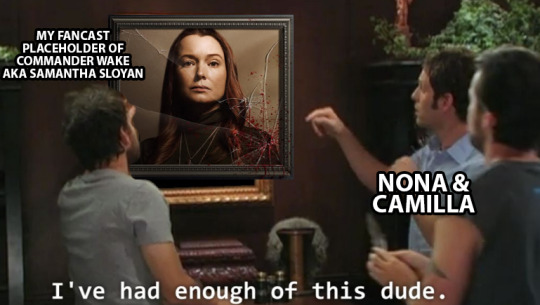
palmolive had to do some necromancer operation shenanigans to remove the bullet from nona's head
and sriracha girlie decided to exit the chat
BOE freaked out about the operation and put a shackle on camolive and locked them and nona together
nona is embarrassed about the tantrum but palmolive is like "fuck them, actually"
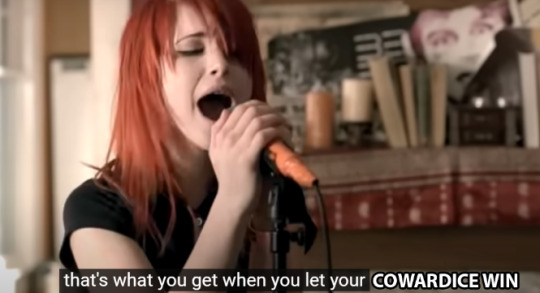
palmolive is mad about them leaving the gang in the dark in so many ways and thinks they had it coming for doing that
I agree, I mean, I get where BOE is coming from with the hesitancy to trust people who were on the other side of this
but it's not like you have a chance to win against nona, pyrrha and camolive, if it gets to that
and there's so much you don't know to even think you can win
so, maybe this could have been planned better, is all I'm saying
in any case, nona finally tells palmolive about gideon dream girl
and palmolive says that if camilla and him didn't love her so much they'd throttle her and give her magazines to charity
nona thinks that's bs because she's "the most deserving person on the planet"
this ego thing she has going on sometimes takes me by surprise, I forget she thinks like this
I guess it's a kid way of thinking, but still
nona also decides to continue with the reveals and tells palmolive the Secret that I believe is the same she told sriracha girlie a while back
and it's that she's dying
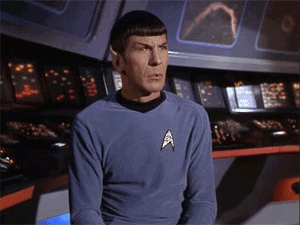
1) how? 2) who, in that clown car of a body, is dying exactly? 3) did it have to be now??????
palmolive is looking like spock up there, actually
(would palmolive be a spock fanboy? because I think very yes, but we don't always agree on our palmolive headcanons)
palmolive has to roll up his sleeves and do some necro magic again
"Cytherea the First must have enjoyed those games she played with me"
I could have told you, my guy, but you were being a weenie, like gideon said
I feel bad about it, though, poor guy
*patting palmolive in the head in my mind*
so, nona apparently is starving, but energetically
because her soul is trying to leave the clown car of a body she's in
harrow's body, I think we've established at this point
it makes sense to me, it's not her body, allegedly
and maybe also nona's soul is extra weird, because this is ice cube barbie or some other weird thing that is too powerful for harrow's poor little clown car body
like trapping a genie in a glass dropper
that's kind of palmolive's train of thought too, actually, except he uses terms like "melange" and "gestalt theory" instead of "some other weird thing" and "clown car body"
what I remember of gestalt theory from uni is the concept that the whole is greater than the sum of its parts
I don't know if he means, in this case, that maybe he thinks her a combination of souls and that, if that was the case, it'd give her bigger powers than harrow or gideon would have had on their own
differently from lyctorhood, in which their combination is more on the advantage of the necromancer, who keeps steering the wheel
unless you get og!gideon'd and die, leaving the car to pyrrha
but anyway, palmolive doesn't know about ice cube barbie, so he doesn't consider her in his train of thought
(that's why you need me in the polycule *drops cv*)
I'M TAKING TOO MUCH TIME WITH ONE PARAGRAPH OF PALMOLIVE TALK, WE NEED TO MOVE ON
palmolive tells nona that he can't let her body die because he has to give it back to harrow
nona asks further details of her potential identities
palmolive tells her that, if she's one of two people, he's not harrow
or not solely harrow
this is very funny to me personally because, as I mentioned back in this recap of chapter 2, when I didn't know anything from these books except for the covers and the names of gideon and harrow, I thought nona was their child in the future
so this idea that nona was born from a combination is really hilarious to me
disrespectful of me, laughing at this time

palmolive describes yandere twin as a very obviously dead person with fashion hair, so he roasted her for me
(we'll talk about the chad of it all in a minute)
he tells nona that dream girl gideon might be her, but nona doesn't want to be a redhead and a zombie
palmolive goes "then what are we all?"
not in those words, but that's the sentiment
he also says sriracha girlie "is a very young woman who has been living on her nerves for so long that I imagine she doesn't have anything else. She'll regret what she did at some point"
ouch, man
I think this isn't the last we've seen of sriracha girlie and she'll come to ruin the party at some point
well, not party, that's a sensitive subject
can't blame her, though, she's been harmed by these people and got her family killed, I can't judge this child
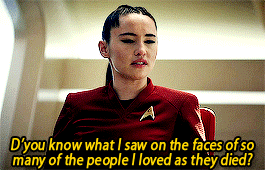
palmolive explains that the shackle they have is explosive and that we suffer and coronabeer have been planning things somewhere without them
kinda wild they ended up trusting coronabeer more than camilla, but I guess it isn't a matter of cv but of how they acted when they were brought in and how coronabeer became one of them
"I hate being locked up" "So did Gideon, I gather"
palmolive, if I told you how this whole thing started with gideon wanting to not be locked up anymore
well, it started with dr reverend emperor john becoming a streamer, but that's another story
"I haven't been able to save many people in my life, I'm afraid, but I'm intent on saving you"
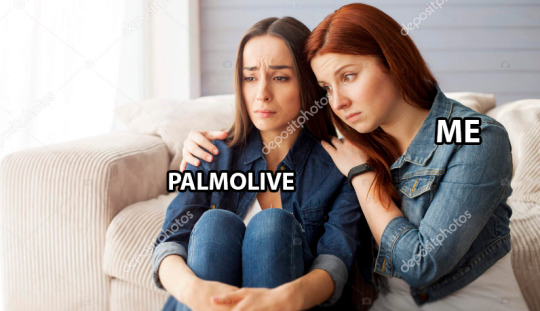
camilla and palmolive switch places and in comes we suffer, without a mask
nona says she'd think her pretty if she wasn't so upset
does nona think everyone is pretty or is everyone pretty here?
is there a difference?
we suffer says that BOE was very impressed with nona going apeshit
she also doesn't want to tell them who angel teacher actually is
she does confirm that angel teacher is a member of BOE and that it was an awful idea to have both the gang and her in the same area
we suffer is also kinda upset at camilla for not telling her that she can do necromancy (which, technically, she can't)
and mentions that the whole thing that went down has made the BOE factions more undecided on what the hell to do with them
we suffer mentions someone volunteered to go face the house people because it wouldn't be a death sentence for her
immediately, I think this must be coronabeer twin
camilla doesn't think this is a good idea whatsoever and we suffer says she needs camilla to translate the stuff that will be said in the meeting
and that coronabeer claims that she's expendable whereas camolive is not
which yeah, to me personally, that's true, but I'm not the standard opinion here
apparently they tried to bomb yandere twin out of existence but we all know that doesn't work on a lyctor
unless you're palmolive, who is an expert on exploding and lyctors
we suffer also thinks it's time for BOE to attack because wake always had them on the defense and it hasn't worked so far
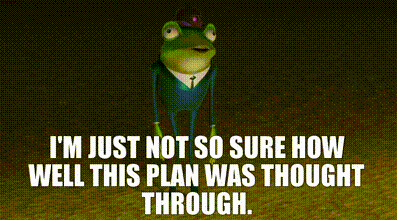
camilla says coronabeer is giving in and that we suffer has been, played because she can't lie to yandere twin
at this point, we suffer is just gonna have to sit there and listen, though, whatever happens
we have an idiom here, "estamos en el horno", which literally means "we're in the oven" and it's used to describe moments in which you're in a very rough situation that is inescapable
kind of like "we're fucked", but more metaphoric
that's what's happening over here

I'm teaching you guys very local idioms but I need you to see what I see
coronabeer reaches the houses spot and this happens
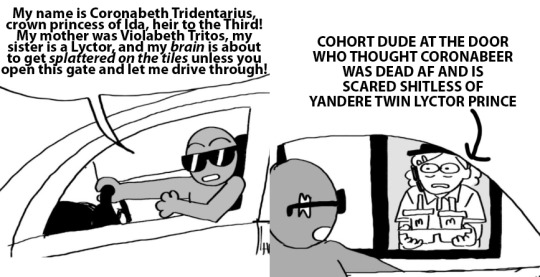
wild to hear someone say "my sister is a lyctor", since most lyctors we knew were a william years old and had no surviving family
that I know of
also, cohort dude at the door will have an awful day because I think coronabeer is the one person who has the most Let Me Speak To The Manager attitude in this whole book series
all she's been doing this time is speak to managers, actually
yandere twin shows up and hugs coronabeer and now I'm realizing she's using chad's body
which is so stupid of me, because nona mentioned yandere twin had brown hair in the video and I was like 'wasn't she blonde????'
but sometimes I don't understand things and you guys are like 'that's not what happened' and I feel dumb, so I was like 'ok, maybe all this time I was wrong about the twins being blondes'
but no, she's using chad like linguini from ratatouille
so that she can set foot in the planet because of the blue light and all that stuff
chad and yandere twin
(or yandere twin channeling chad idk)
roasts coronabeer for her jewelry and the state of her hair
yandere twin says she didn't know coronabeer would be there and that "he" (I assume this is dr reverend emperor john) will think she went there on purpose
so coronabeer unveils her very sick girlfriend judith
yandere twin is like
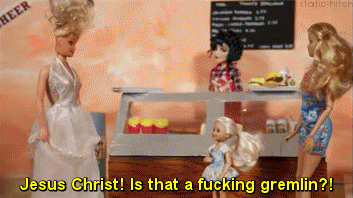
coronabeer goes "didn't harrow tell you?" and yandere twin is all defensive "when did you talk to harrow?"
this situationship yandere twin has with harrow is very complex
yandere twin doesn't want to help judith
she says "Judith Deuteros, who, when we played Marry, Kill, Reanimate, you used to say reanimate because nobody would be able to tell the difference?"
(I need to make a poll with those options in a recap at some point)
coronabeer being all helga pataki with judith throughout her life is great
she was so doomed
I need more of that, I live for the coronabeer/judith ship
I was trying to explain why I like their dynamic so much and while I was writing it I REALIZED THAT THEY REMIND ME OF
YUZUKI AND MAKOTO FROM SKIP AND LOAFER
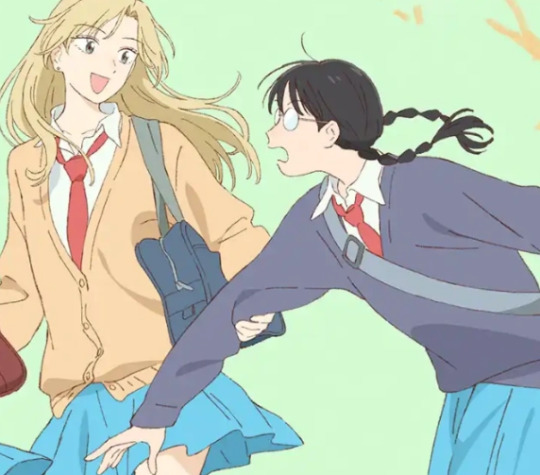
pretty, popular, extroverted girl who doesn't want to be reduced to her looks and gets infatuated with the strict, formal, overthinking student council girl, you get me??????
I'm gonna root for them forever
yandere twin wants to crush my hopes and dreams, though, and kill judith, because she's already been putting down necromancers
she's also very upset because the third doesn't care about her becoming a lyctor but are grieving coronabeer instead
a lot of problems would have been solved if these girls' family wasn't such shit
coronabeer asks about gideon and yandere twin says "so you remember her name"
yes, yandere twin, thank god we've moved on from that problem
our current issue is a clown car body of a girl
it seems that chad can get thoughts through to her, or so she says
chad's comments are about coronabeer's accessories, though
also, at this point, when realizing that it was chad's body, I also realized that's who palmolive called "handsome"
palmolive and chad, in another life, you could have been like coronabeer and judith, with an unlikely bond
apparently, yandere twin doesn't want to be seen as "the bad guy"
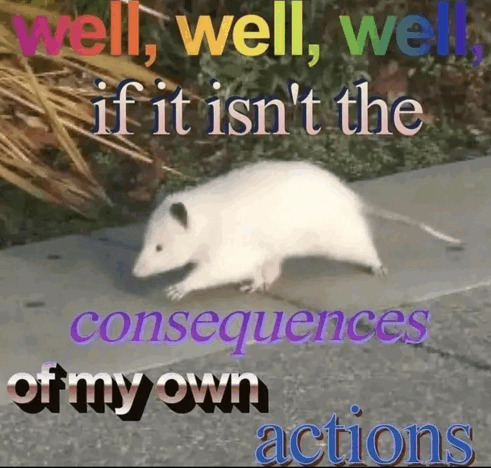
yandere twin alerts those listening that she knows coronabeer was wired and uses the link to establish her demands: the sixth oversight body (which is not the oversight of losing gideon's body), camilla and harrow "as intact as you have her at this moment"
meanwhile, camilla thinks coronabeer is trying to tell them something through the overheard conversation
yandere twin insists on how judith never paid coronabeer any mind and coronabeer tells her she's a dick
when they get in the facilities, though, there's pyrrha
remember pyrrha? here she was all along
yandere twin says she's taking her (she calls her "him" because I think she still thinks this is og!gideon and not pyrrha) back to dr reverend emperor john
"if Poppa can look up from his mid-dismyriad crisis long enough to pay attention"
SHOULD HAVE THOUGHT OF THAT BEFORE SAVING HIS ASS
"You might be the Saint of Duty but I've been on call as Teacher's whipping girl for the last six months"
SHOULD👏HAVE👏THOUGHT👏OF👏THAT👏BEFORE👏SAVING👏HIS👏ASS👏
pyrrha also wants to kill judith, which is bad for me
leave that wet mouse alone
coronabeer asks if pyrrha told yandere twin about harrow and camilla
(I assume she means nona)
yandere twin says she has
is pyrrha triple crossing people? quadruple crossing?
acting like she's og!gideon in front of dr reverend emperor john was crossing 1, then she's acted like she's part of the gang as crossing 2, acting like she's actually on yandere twin's side is 3 and maybe being infiltrated here to pass on info or something would be 4
that's quadruple crossing
no wonder she was a cop
CHAPTER 21 (broken third skull, the girls are fighting???)
nona is happy that pyrrha's whereabouts have been secured
the rest, to her, is confetti
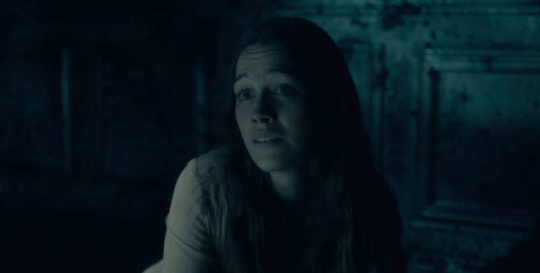
camilla tells we suffer that, all things considered, it all went better than she deserved
we suffer is having a mental breakdown because coronabeer has stolen judith and ran to her sister and they lost the bug they had on her
camilla advises her not to make nona angry and to scan for other bugs on the frequency
because camilla is wonderful and amazing and thinks of everything
camilla mentions nona, during her tantrum, attacked the guards with a chair with a two-handed grasp she never taught her
which is points for gideon in the leaderboard
but idk how ice cube barbie fought, it could also be her, for all I know
the sword was old and mysterious
it's not harrow because harrow had a toxic relationship with the sword
nona stares at camilla and "looked up into the eyes that used to belong to Palamedes, long before she knew either of them" and her nose bleeds
not sure who that's a point for
camilla and palmolive desperately want to talk to each other, which is so exasperating, poor babies
we suffer comes in all happy because camilla was right (did anyone doubt that?????) and there's a bug in the area
camilla assures her it must be on judith
I wonder where and how it was placed there
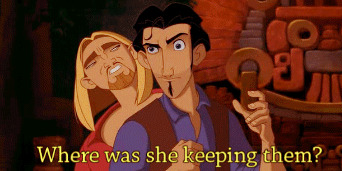
she also says nona was right about pyrrha giving them codes
and that pyrrha will do anything to get at the shuttle
palmolive and camilla switch again and nona has to update palmolive on everything that went on
nona thinks yandere twin wearing chad's body is coronabeer's boyfriend and is happy to know he's not
idk if she's interested in everyone romantically at the same time or she's not and that's how she expresses her feelings
palmolive introduces himself to we suffer and asks whether they'll give them the sixth if they retrieve gideon's body ("the key to the Locked Tomb")
I assume the bit about the key to the tomb was told to him via pyrrha, who's the only person with a memory present and aware at that time of the whole wake-augustine-mercygirl-emperor conversation
we suffer says she'll give him anything she can for the key to the tomb (including the sixth)
wild how the destiny of the universe was kind of hanging by a thread in baby blender's and kid jesus' playground in the ninth for a while there
palmolive thinks yandere twin is at a disadvantage with the limited abilities she has in the planet as well as with pyrrha, who he still completely trusts
palmolive doesn't know why yandere twin brought gideon along, he suspects it was to bait out harrow, but both him and we suffer need that bod
we suffer, because of the tomb
palmolive, because he thinks it will help nona survive, if that's her actual body, or the body of a part of her soul combo
he is more cautious than we suffer though, because she went from "we're en el horno" to "we've got this, team" real fast
and palmolive is like
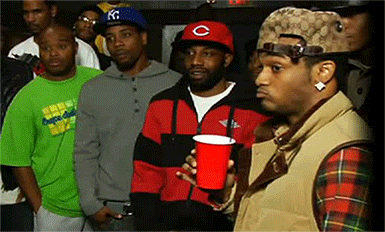
palmolive is, though, very optimistic about his and camilla's chances of making this happen
or he's just risking it all for the sixth
when they switch, nona tells camilla that palmolive revealed it all to we suffer and camilla says "I don't know why I bother"
which is a mood
we suffer tells camilla that the whole sixth thing is complicated because BOE has factions that aren't always aligned and that wake could move them at will but she can't
I'm guessing they didn't know wake was having a close encounter with two sides of the same lyctor
camilla said she'd try to do it and we suffer goes "Palamedes Sextus thought you could"
if camilla is harmed here istg
I'm gonna eat these pages
I'm gonna rip them with my teeth and eat them
we suffer also requests that, if they leave planet, they take a package with them
unclear what it is
hope it's not a living being
or a kid, unless it's kevin
meanwhile, in the new audio coming from judith's intimates, coronabeer is talking to pyrrha and is upset that they're putting gideon in pretty dresses and parading her around like a doll
me too, actually, I mentioned it in the last recap
coronabeer is also disappointed that yandere twin didn't come for her specifically and it was only a mission to her
she missed you, though, back in the emperor's bolthole
between the lyctor orgies, the arm stuff, the nudes in the walls and the soup
yandere twin has apparently told pyrrha to not let coronabeer help judith
she starts doing a ward but also has time to both insult coronabeer's non existent necro abilities and act disgusted by the prospect of touching judith intimately
she also goes "What did Harrowhark use to always call you? Tortoise? Blorgus?"
is she trying to say "ortus"?
girl, I'm the one with the funny nicknames when the names are complicated, but ortus is definitely not
coronabeer wants to hear the whole story of the brain tampering that resulted in that
meanwhile, camilla seems to have de-coded pyrrha's message in there somewhere
and what she thinks is that nona is the key to something they want
which might be the body, but also who knows
camilla promptly asks for supplies because I think we're gonna try a heist!!!
a heist in which nona might pretend to be harrow?????
but A HEIST!!!!
love it for them
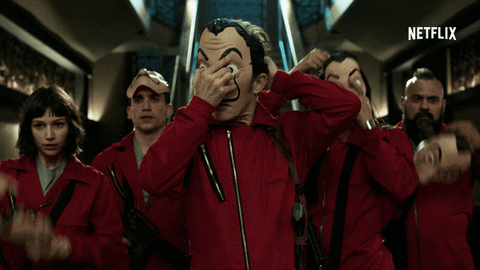
JOHN 9:22
"His parents said this because they were afraid of the Jewish leaders, who already had decided that anyone who acknowledged that Jesus was the Messiah would be put out of the synagogue."
WELL, THEN
pov person who was called harrow but might not be entirely harrow talks about their regenerative powers
they seem to be walking in the ruins of the place where dr reverend emperor john used to reside
so like, post apocalyptic earth?????
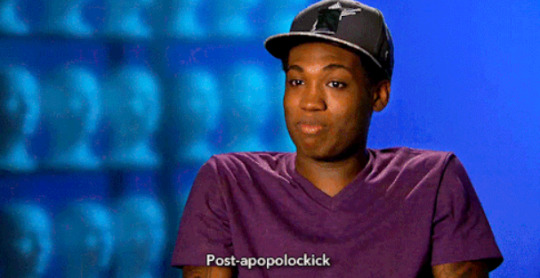
are they astral projecting????
apparently, going theatrical and calling himself a necromancer did the trick to reach big audiences
maybe if one of the lyctors had been a marketing specialist, this would have taken half the time
"It even scared A— He was all, Matter doesn't play by these rules! You are doing bone parthenogenesis! I told him his mum did bone parthenogenesis. A— told me he'd kill me one day"
GOD, I WISH HE HAD
they're still going around the fact that, since he can't recuperate the soul, he can't really bring people back to life
he was happy, though, that some people showed up and were pushy enough to be shot so that he could witness people dying live
I'm glad it worked out for you, asshole
he also gets kind of hooked on witnessing violent death because of how it makes him feel
so, he just started killing people remotely
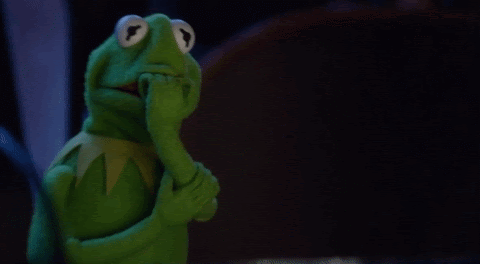
pyrrha shook him and stopped him and was like "what in the fuck are you doing?" and he gave a ukelele apology
"Guys as careful as you shouldn't have accidents"
when the cop is talking reason, you know how twisted things are
they brought in all the corpses for the "skeleton army" he was no longer joking about
pov girlie asks if he know what caused his accident and he said "guys as careful as me don't have accidents"
I don't want to kill him anymore
that'd be too kind to this man
that'd be too merciful, he doesn't deserve that
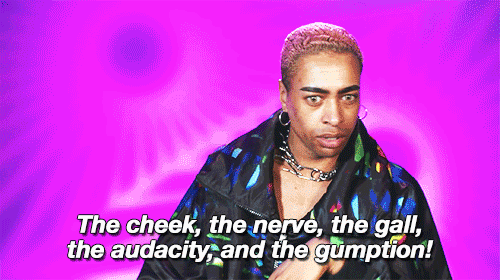
AND THAT'S IT FOR NOW!!! Sorry this was a long one again! These are taking so little time to read and so long to recap >_< I end up finishing them at ass o'clock and sleepy, but I wanted to get it out!! See you in the next one! Please be kind ♥
80 notes
·
View notes
Text

TV Life, 3/28/2025 Issue ft. Fuyuno Mio & Shoji Kohei (translations below)
Publication: March 12, 2025
OneLog! Vol.1 (Fuyuno Mio)
-The Director's words to "capture the nature of my role" is what I cherish as I face Hoeru-
Everyone, it's nice to meet you! I'm Fuyuno Mio, I'm 21 years old and play the role of GozyuWolf and Tono Hoeru. For me, tokusatsu shows have been something I've admired since I was a child. "Engage!," the transformation yell for this work, is compact, yet so intense and cool, that I remember how excited I was when I first said it during filming.
As Hoeru's name suggests, there are many scenes where he howls, "Awoooooo!" In the beginning, my voice would sometimes give out as I wouldn't be able to hold it, but the more times I did it, the more people around me started to say, "Your voice is improving." I feel like my throat is getting stronger, and most importantly, I become more fired up when I howl.
I do my best with daily filming, but when I become anxious and wonder, "Is this scene gonna be okay?," Masa-kun always says, "Don't worry!" Masa-kun's been looking out for me since the script reading stage, and even gave me words of encouragement at that time. Masa-kun has really saved me, and I'm incredibly grateful to him. Also, while I was taking notes during the reading, Director Tasaki casually wrote the words "capture the nature of your role" in my notebook. Since then, I've come to cherish those words as I face the role of Hoeru.
Future episodes will feature Hoeru's past, so I hope that you'll pay attention to how Hoeru got to be where he is today. The whole year will be like a festival, with developments rapidly unfolding. Things are going to get more and more exciting from now on, so please make sure to look forward to it!
Q: In relation to Number One Sentai, what are you most into these days?
A: Lately I've been into baseball. I thought, "Wouldn't it be cool if I played baseball?" (laughs). I've been swinging a bat at a batting cage to get better at it, but I can't seem to hit the ball very well. I'm still working hard on it, so I'd be happy if I could show off my skills within the show someday.
Number One Shot!: This is the cutout used during the opening credits! We had a fun time filming with the life size cutouts of the five cast members! Shocking stuff has been happening since episode 1, but there'll be more exciting developments in the future, so please make sure to look forward to them. _
GavvPare! Vol.14 (Shoji Kohei)
-Using the phrase "I'm tired" in a natural way-
Since he started working part time at Hapipare, Lakia's state of mind has gradually changed. With Lakia originally working in the Granute world, I thought he wouldn't be that opposed to communicating with the people around him. I think he's able to talk normally with Sachika and the others in the human world simply because he just thinks that the people he's talking to are different. To better illustrate what I'm saying, the feeling is similar to experiencing culture shock when interacting with another Japanese person versus a Westerner, as the flow of the conversation and reactions you'd get are different. In that sense, my reactions to scenes such as eating ice cream and pudding or working part time aren't over the top, but are more nuanced like, "This isn't quite what I imagined."
I've always been conscious of not overdoing the "I'm tired" line, as there are times when I say "I'm tired" when he's in a positive state of mind, as if to say, "Alright, let's do this," but in other cases, I say it because he's too lazy and doesn't want to do something. However, I think that if I give each and every one of them meaning, the viewers will also stop and think "I wonder if there was any meaning to that just now," so I try to say it naturally and without it sounding forced as much as possible. Having said all this, I myself haven't developed a habit of saying it, but I was once teased when I casually said "I'm tired" while talking with a friend (laughs). It was pretty embarrassing, so I've been saying it less often (laughs).
Suga begins to make some major movements starting from episode 27. Through the incident with Koji-kun, Lakia's attitude toward humans has become softer, and while he's adjusting to the human world, he once again thinks about his reasons for fighting. Also, I hope you'll look forward to seeing if he'll be able to open up to Hanto, who he's still very much at odds with.
Q: When you hear "Spring," what comes to mind?
A: It's flowers. I started writing haikus last year, which led me to become more conscious of what catches my eye, but I think I'm now able to enjoy scenery on its own more than I did before. Cherry blossom season is approaching, so it'd be nice to go to a park with friends and enjoy the cherry blossoms and greenery together while drinking sake.
Off Shot: A picture taken during the infiltration of the dark sweets factory. Now that I think about it, my black costume in combination with the belt is a rare sight. Lakia's outfit will occasionally change from now on, so make sure to look forward to that too. It's already Spring!!!
#no.1 sentai gozyuger#gozyuger#super sentai#kamen rider gavv#kamen rider#hoeru tono#tono hoeru#rakia amarga#lakia amarga#mio fuyuno#kohei shoji#shoji kohei#my scans#my translation#various tv japan#rikuo byakuya#ryuji bakugami#kinjiro takehara#sumino ichikawa#tokusatsu#toku cast#no 1 sentai gozyuger#no. 1 sentai gozyuger#I hope he actually howled during this interview 💀#then kohei dropping a casual darui on his friend 💀
63 notes
·
View notes
Text
I feel like with any sincere discussion of Veilguard we should start off by establishing that there are multiple forms of 'fun' as it were, to be had from video games. The main purpose of a video game is, after all, to be fun. To entertain us.
So. With Veilguard I feel the problem is this; Veilguard succeeds at being fun. It succeeds at the kind of actionable fun. Veilguard is fun to actively play for most people. The combat is fun, the level design is fun, the main storyline is fun whenever we get to it. Veilguard offers fun that is quick and instant. I think it was no small feat that BioWare has finally managed to design levels and combat for a Dragon Age game that feels complete. Although I will go to my grave defending the tactical combat of DAO, it is a different more gripping kind of fun that Veilguard's mobility and systems can offer.
But there is another form a fun. The kind of fun you might be more used to associating with a good book. The fun of a story you can't wait to see the end of. The fun of fantasy world building, of seeing the marvel that is an author, or a collection of authors, who know what their vision is, and who are subtle enough to communicate that vision through fiction. The joy of seeing the result of experts building their craft. Environmental clues, implications in dialogue, tone in atmosohere. Seeing a good story unfold is fun, and with video games, which are an interactive audio visual medium how much moreso?
A book is just words, a show on tv is always linear and restricted to what the camera shows us. A video game has a whole three dimensional world that you can move inside of, witnessing the story and world building both passively and actively. A video game has dialogue and characters, who can both drive and narrate the plot for you. A video game can put you inside the world the story is happening in and immerse you in it.
And I feel that Veilguard fails to take advantage of the full breadth of the vast collection of storytelling tools a video game has. The fact that the companion quests and companion writing seems to have been left incomplete, pieces wilting on the cutting room floor when the companions are meant to be the emotional core of this story? The fact that all the factions are presented as unambiguous good guys which leaves them with no depth, their stories woefully superficial and unwilling to engage in any deeper ideas? The fact that vast amounts of world building and lore have been essentially discarded? That is all severely unfun.
So I think it's fair to say that Veilguard is fun and disappointing and not fun. The fun that I had while playing this game was always followed by a collection of things that were not fun. And the most annoying part is the parts about Veilguard which are fun are the parts that are fleeting. That I can find combat in a video game entertaining, extremely entertaining sometimes, is nothing when compared to the staying power of a gripping story with not just good set up and pay-off, but also an immaculate structure supporting that all the way throug.
When I am 80 years old I will not remember fondly the fact that Veilguard was the first Dragon Age game to finally have an actual dodge mechanic. There are always going to be games with fun combat mechanics, Veilguard isn't special for that. But I will remember Solas turning into a dragon sized wolf in a desperate bid to fight a dragon ten times his size, to help the hero he became a villain to. I will remember what it felt like to have a protagonist start off by treating Solas with suspicion, knowing there was no reason to trust Solas but choosing to give Solas a chance to prove himself trustworthy anyway, and Solas breaking that trust. And I'll remember what it felt like to have that protagonist then face Solas again, and make a choice to either be kind or to be just like Solas.
You will sometimes see gamers who say they don't really care about the writing in their games that much, but then their favourite games are things like The Witcher 3, God of War, The Last of Us. The reason they say that is because the writing is so integrally a part of the gameplay experience they don't even realise how much work it's doing. Fun gameplay doesn't matter if there is no reason to continue it.
Do you know what I remember about Dragon Age Veilguard? I remember dreading opening the game and seeing the list of companion quests in my journal that I had no interest in doing, because I had already realised how nothing a lot of them were. And I'm not talking about the gameplay of those quests, I think we've established I enjoyed smacking the bad guys and moving through the levels quite a bit. Oh no. I'm not even talking about the dialogue, not really. It was the stakes. Why were these characters doing these things, and why should I care? There was so little emotional conflict in those early to mid game companion quests.
Do you know how plot structure works when you really boil it down? Conflict is set up -> tension rises -> conflict comes to a head -> tension releases. This is why you need conflict and this is why you need characters to have flaws that they will not self psychoanalyze to a resolution within the first 5 minutes of the story. The realisation of those flaws is the plot! The character overcoming those flaws is the plot. You can't have a story without plot! What are we doing here????
That's how those quests felt. They felt like all the actually meaningful things the writers of these sub-plots had to say got crammed into their final quests. With a couple exceptions. And that's why doing most of the companion quests felt like a chore.
So, anyway, in summary. Remember that a video game contains within itself multiple forms of fun. As many forms of fun as there are ways of interacting with a game.
#i am coping i am coping i am coping I AM COPING#veilguard spoilers#datv critical#veilguard critical#le sigh#at this point i am just stream of conscioussing my disappointment out there
84 notes
·
View notes
Text
Despite my occasional gripes with Tumblr Austen fandom, sometimes I get recommended or linked to something and remember what Austen fandom off Tumblr is like.
I was checking a message from my mother on another platform and immediately was recommended a group discussing what were essentially headcanons about Lady Catherine. The OP was fine; her question was interesting and she kept gently pointing out that a lot of widely-held fandom opinions are neither stated nor implied in the book. But a good 80-90% of the fairly numerous comments were the same old "Lady Catherine is lying about her relationship with her sister" "she was jealous of Lady Anne for being sweet and beautiful" "she probably wanted to marry Lady Anne's husband herself" blahblahblah.
It wasn't complete consensus, but so near to total agreement that it was kind of astounding. Especially given that, for instance, the fanon of young Lady Catherine being jealous of Lady Anne is wholly fanon with zero evidence in the book or even the major adaptations. The insistence that Anne de Bourgh was not actually in her cradle at the same time as Darcy and should be significantly younger than him, that he wasn't really intended for her from the moment of his birth, that Lady Catherine saying so is further proof that she's exaggerating and/or lying, and that Lady Anne must have been completely different in personality, so much sweeter and prettier than Lady Catherine and Lady Catherine was super jealous and mean towards her—it's all entirely manufactured by fandom.
And while Lady Catherine is a flawed, petty, snobbish, deeply obnoxious, and rather silly person, I've always found something strange and unpleasant about this propensity for inventing so many more, and worse, reasons to hate her and frame her as an antagonistic polar opposite to her sister (a sister we know very little about). And I'm especially weirded out by the kind of desperate straining to dispute the Lady Catherine-Lady Anne marital scheming backstory that is a fairly minor element of the plot that no character in the book has any difficulty believing.
Here's Elizabeth's response to Lady Catherine trying to leverage the planned engagement against her, for instance:
"But what is that to me? If there is no other objection to my marrying your nephew, I shall certainly not be kept from it by knowing that his mother and aunt wished him to marry Miss de Bourgh. You both did as much as you could in planning the marriage. Its completion depended on others."
So it's like ... it's not just that I think there's no canonical basis for disputing this bit of backstory. The thing I've always found much weirder is why so many people want to dispute it. Where is all this discomfort arising from? A pair of aristocratic women married to wealthy, powerful landowners in 1770s/1780s England informally arranging the marriage of their only children is not particularly strange. Yet there is a ton of fannish discomfort around it and around the possibility that Lady Catherine and Lady Anne got on well enough to make such an arrangement.
The discomfort is even more conspicuous because we know so little about the sisters' relationship. It's like:
1) Lady Catherine's daughter and only child shares her sister's name, Anne.
2) Lady Catherine claims that she and Lady Anne planned their children's marriages when both were infants; Wickham also mentions the planned engagement in passing, apparently to reinforce his claims to special knowledge of the Darcys' concerns.
3) Lady Catherine is the only person in the novel who specifically mentions Lady Anne on more than one occasion.
4) more tenuously, Lady Catherine believes daughters, in general, are never all that important to their fathers, an opinion presumably encompassing herself and her sister wrt their father the earl.
The only other quality about Lady Anne suggested by anyone in the novel is Darcy's very carefully-phrased suggestion that his father (rather than Lady Anne) was extremely amiable and benevolent, more than his mother, though both were good people. So the idea of Lady Anne as this sweet and pure ideal mother figure who couldn't possibly have been on genuinely good terms with her awful sister or been party to dynastic scheming while Darcy's father was more reserved and standoffish like him is pretty much entirely manufactured by fandom as well.
I guess my feeling on seeing this still going at full throttle in 2024 is that the "Lady Catherine must have been mean to and jealous of her perfectly sweet sister who of course never agreed to any of this nonsense or was just trying to get her to shut up" thing is such a weird takeaway from pretty much every single thing we hear about Lady Anne and Lady Catherine. It seems completely non-intuitive as a take on what little we do know of this backstory and how the other characters react, and the version suggested in the novel is neither shocking nor central to the story, yet there's this palpable fannish discomfort about it and about Lady Anne potentially being fine with Lady Catherine and less of an idealized icon than her husband.
I know I've talked about this many times over the years, but running across it still going at full force in July 2024 was pretty surreal.
#anghraine babbles#anghraine rants#long post#austen blogging#austen fanwank#lady catherine de bourgh#lady anne darcy#anne de bourgh#fitzwilliam darcy#pride and prejudice#jane austen
183 notes
·
View notes
Text

“The psychic prowess of Mercurial Natives”



#001
✮ mercury/jupiter sag/gemini pisces/virgo edition

Jupiterians 🤝🏼mercurians
Picking a concept/narrative/desire and pulling it out of their ass like a magician pulling a rabbit out of a hat

WHY Mercury is psychic af:
I believe mercury is about psionic gifts and reality manipulating. In other words, mercury ISNT psychic becsuse it has a refined intuition, or becsuse they read the room with ease. It’s becsuse they know how to manipulate the foundations of shit in order to get to a desired goal or outcome. The issue I’ve seen, especially with mercurial psychics that have Jupiterian influence (ie a sag rising with Gemini/virgo Jupiter, A Virgo rising or Gemini rising with a sag mercury, and so on and so forth) I’ve noticed these particular natives align strongly w the “grotesque expansion” aspect of Jupiter. Their impulses come to life with ease and if the individual is hedonistic or self serving it’s a WRAP. They’ll go to insane lengths to get what they desire, because remember this is the magician archetype in tarot w influence of the wheel of fortune. A mf who makes reality as they go, who projects their deepest desires, fears, and even their selfish wants into reality. Even sometimes trumping the wants, needs, and desires of others in order to attain a goal. There is something about the combination of mercury and Jupiter that can be incredibly destructive in its expansion. I think particularly this is the case with Gemini due to the dissecting nature of air. With both also being high mutable in nature (mercury Jupiter) it is easy for things to mutate or morph beyond recognition.

✮ In some cases where the native has Scorpio placements they can at times become vampiric of others. Even feeding on blessings, pain, suffering, or other things of others in order to sustain themselves emotionally and keep the energy to generate their manifestations. ✮

Mercury can be so very illusory and very believably so. It feels lucid, it feels engaging, it’s like you’re coked the fuck out at a car dealership with the most charismatic salesperson ever. They know how to sell you on an idea or a narrative, even if there isn’t supportive evidence a mercurial person can make it make sense to others. They know how to spin things to sit in their favor and they know how to passively alter small pieces of information or moving parts of a situation so that it looks like something it ISNT. MERCURY IS A SALESMAN!!!!! They know how to buy people with time effort, energy, and actions. They do things/say things to other people transactionally to get a specific response and have a certain outcome so they can rely on those people for favors of some kind a lot of the time. I’ve noticed that like aquariuses Virgo’s tend to have a lot of people they know who know things. It’s Absolute madness but it’s so stimulating, mercurians are INCREDIBLY psychic in my personal observation.
Piscesans manifest easily and often but also can be incomplete- it’s like they forget to put more effort into shaping the desire. I feel like this is the same exact issue for Sagittarius and why the manifestations never seem to last.
I will admit that with mercury it can last, but the issue is CAN IT BE MAINTAINED? I think that mercury does require a lot of balance and mastery and the ability to hone and focus energy. I do believe that mercurial psychic gifts show up very differently than the generalized idea we have of these gifts. Mercury goes beyond just the senses, mercury is the reality. Mercury is the mundane detail, these are people who can alter the shape of their reality and the reality of others. Is this scary? Maybe a little, is it cool? HELL YEAH BROTHER!!!!


#mercury#Virgo#Gemini#astrology observations#astroblr#astrology community#Sagittarius#Pisces#Scorpio
37 notes
·
View notes